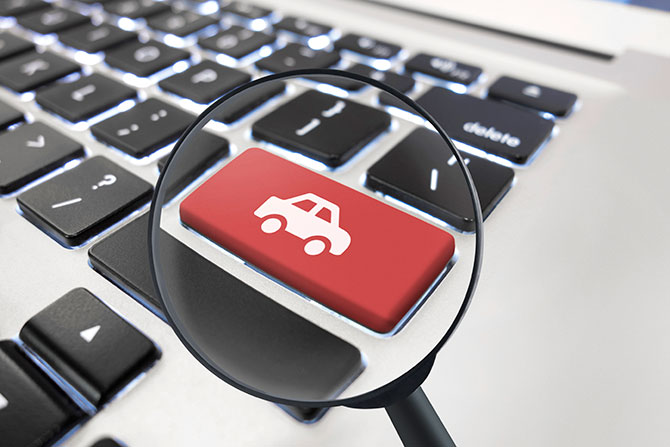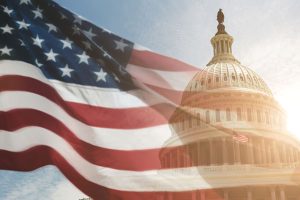Again, if the goal of this partnership is to give Amazon insights into how to sell direct and enable existing and future automakers to bypass neighborhood new car dealers, then it should be a concern for dealers AND consumers.
If you need a book, vitamins, or a million other simple, low-cost products, Amazon is an excellent resource. But these items don’t involve trade or financing. They don’t require titles or registrations and don’t involve government-mandated disclosures and wet signatures on transaction documents.
If the goal of the Amazon-Hyundai partnership is to simplify the car buying process and allow consumers to enjoy a frictionless e-commerce experience like the one they have when they’re buying toilet paper, then I applaud the effort, even if I’m somewhat skeptical they can pull it off.
However, if the goal is to learn how to bypass Hyundai (and other brand) dealers, then it should be a concern for both dealers and consumers who lose their ability to compare options from various inter- and intra-brand dealers who compete for sales and service when manufacturers sell direct.
Amazon is the world’s biggest retailer and a leader in the e-commerce space. But I think they will find selling cars isn’t like selling toilet paper. First, the average sale on Amazon is $50. The average new car sale price today is almost $50,000. Second, most new car deals involve a trade-in and/or financing. A vehicle must also be titled, pursuant to 50 different state laws, and must be registered with each state’s DMV. Don’t forget that many of the transaction documents required to accomplish a vehicle sale require wet signatures, and there are many legal disclosures and government-mandated notices that must be delivered to consumers at the point of sale. These are the very real reasons no one has yet made buying a vehicle feel like any other e-commerce transaction — because it’s NOT.
This “pilot” will still require consumers to speak with and take delivery from a dealer. How does this make Amazon any different than other lead generators (i.e., AutoTrader, cars.com, etc.)? Amazon and Hyundai are spinning the partnership as something more, but it remains to be seen what that means.
The announcement said customers will be able to do everything online through Amazon and simply go to the dealership to pick up their car. That’s not new or different. Today, many consumers shop online for the vehicle that best fits their family’s needs and budget. Some visit the dealership for a test drive, but many consumers never visit the dealership except to pick up the car. That is already happening today, without Amazon, so it’s not clear what else they are bringing to the party.
Don’t forget the stack of papers every customer needs to sign — some required by state or federal laws, some required by manufacturers, some required by the finance or leasing company, and others required to title and register the vehicle. Many of these documents require wet signatures and can’t be signed electronically. How will Amazon handle this important step in the purchase process?
Amazon and Hyundai should be careful not to oversell what they are offering consumers. I’m concerned they will leave the dealer with the unpleasant task of delivering bad news when the customer shows up at the showroom and finds out their trade isn’t worth what Amazon told them or they don’t qualify for that low-interest loan or favorable lease deal or the vehicle they wanted isn’t available. The customer is still going to spend time signing a stack of required legal documents at the dealership. No doubt, the consumer will blame the dealer for any hiccups in the process, but not Amazon or Hyundai, even though Amazon and Hyundai failed to manage customer expectations adequately.
I also have concerns that the Amazon-Hyundai partnership is going to give Amazon an education that will enable them to facilitate direct sales for manufacturers that don’t appoint dealers, and I believe consumers should be concerned about that as well.
While the Amazon-Hyundai deal seems like it will function like any other lead generator, it offers Amazon a learning opportunity that may enable them to facilitate direct sales for companies — such as Tesla, or Amazon partner Rivian — that don’t currently use a competitive dealer network.
This is bad for consumers because the direct sale model eliminates competition for sales and service, placing the fox in charge of the chicken coup when it comes to warranty and safety recall services. This is why most state legislatures have enacted laws that require automakers to sell through a network of independently owned and operated new car dealerships. Manufacturers can’t be trusted to honor warranty and safety recall claims fairly and faithfully. Look at the recent Reuters story about Tesla dodging warranty claims of wheels falling off and suspensions collapsing on new vehicles. Tesla blamed problems on customer abuses, when documents show they had been tracking the defects for years. If Tesla had dealers who get paid to fix those flaws, they would have never gotten away with that.
Overall, if the goal of this partnership is to give Amazon insights into how to sell direct and enable existing and future automakers to bypass neighborhood new car dealers, then it should be a concern for dealers AND consumers.








